Tesco ends sale of 5p single-use carrier bags
Customers will have to buy 10p bag-for-life if they don't bring their own
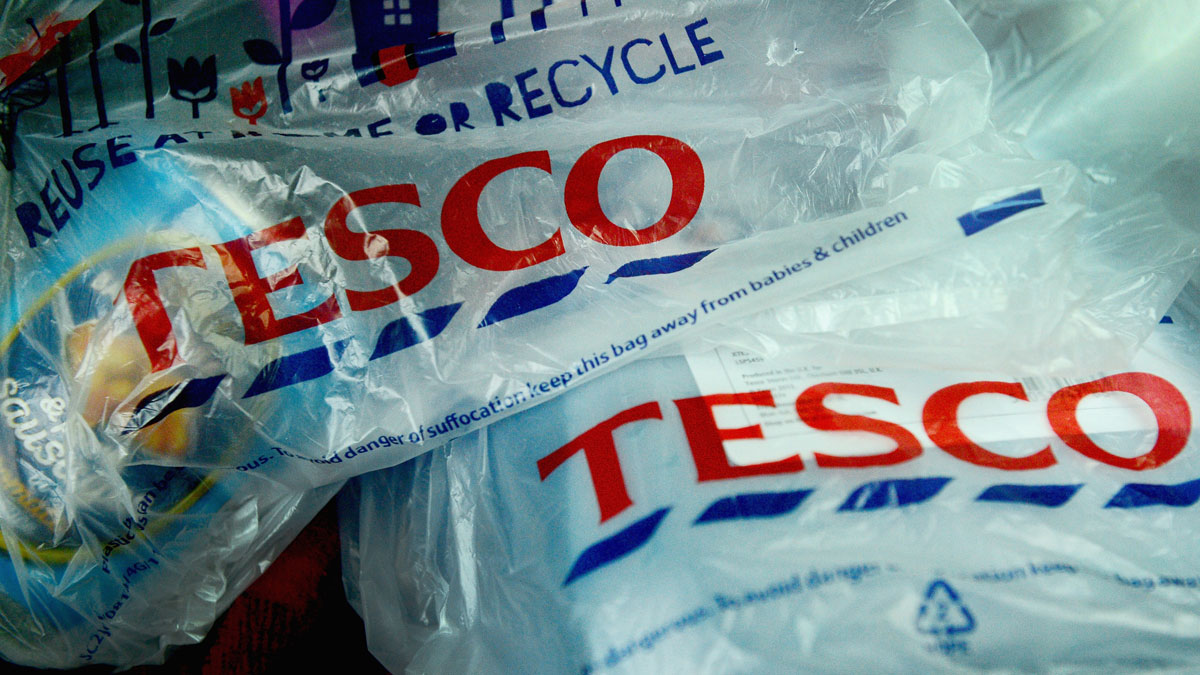
A free daily email with the biggest news stories of the day – and the best features from TheWeek.com
You are now subscribed
Your newsletter sign-up was successful
Pressure builds on Tesco to offload stores for Booker buyout
3 April
Hermes Fund Managers adds to doubts on deal, arguing it will give grocer 'too much power'
Pressure is mounting for Tesco to be forced to sell some of its convenience stores if it wants permission to take over wholesaler Booker.
The Week
Escape your echo chamber. Get the facts behind the news, plus analysis from multiple perspectives.

Sign up for The Week's Free Newsletters
From our morning news briefing to a weekly Good News Newsletter, get the best of The Week delivered directly to your inbox.
From our morning news briefing to a weekly Good News Newsletter, get the best of The Week delivered directly to your inbox.
One of the most influential shareholder groups in the City, Hermes Fund Managers, which is owned by the BT pension fund that acts as a consultant to investment firms with £261bn in assets, has added to doubts on the deal by saying it would hand the grocer "too much power", reports The Times.
It is worried about the impact on smaller retailers - after the £3.7bn buyout, the enlarged group would either own directly or have influence over 8,000 small stores.
Hermes is "spearheading a wider approach to investment, with more emphasis on the environment and society, not just financial returns", says the Times, which adds the group said it would raise the issue with Tesco over fears of a future "backlash".
Matt Evans, competition partner at international law firm Jones Day, agreed, telling the Daily Telegraph that the competition watchdog will probably only clear the deal if Tesco agrees to dispose of some convenience stores.
A free daily email with the biggest news stories of the day – and the best features from TheWeek.com
There were suggestions the grocer might be forced to sell its 635-store strong One Stop-branded shops, although Tesco has dismissed concerns by saying Booker does not own stores, only the Budgens, Londis and Premier brands. Individual stores are owned independently under a franchise arrangement.
However, said Evans, when Booker sold 15 of its Budgens stores to the Co-op Group last year, it conceded that it exerts "a degree of control over the prices and products" in its shops.
The Telegraph says Tesco and Booker intend to notify the Competition and Markets Authority of their intention to pursue the deal by the end of this month, "triggering the clock on [the watchdog's] review of the merger".
This is not the only obstacle facing the deal: Schroders and Artisan Partners, shareholders with more than nine per cent of Tesco's stock, have voiced direct opposition, saying the price is too high at the equivalent of 23 times Booker's peak profits.
They also say it is an "unwelcome distraction" from the ongoing turnaround taking place at Tesco after it posted Britain's worst-ever corporate loss in 2015.
Booker 'shows what Tesco hopes to gain'
30 March
Results from food wholesaler Booker Group this morning have shown Tesco shareholders "what they might not necessarily be gaining", says the Financial Times.
Annual like-for-like sales increased 4.7 per cent for the 12 weeks to 24 March, announced the distributor, which owns the franchised Budgens, Londis and Premier convenience store brands.
Total sales, including stores that have not been open for a full year, rose 4.5 per cent and 6.7 per cent for the last financial year as a whole.
"This morning's trading update from Booker certainly shows what has driven its own share price to a heady 25 times earnings," the FT adds.
Tesco announced its intention to buy the wholesaler in a £3.7bn deal in January. Booker supplies 700,000 convenience stores, grocers, pubs and restaurants and the purchase would create the largest food company in the UK. It also owns the UK's largest network of cash and carries.
But despite the seeming benefits, two major shareholders, Schroders and Artisan Partners, are opposing the deal, citing the high purchase multiple among reasons.
The FT says analysts give some support to their view: "One argument they put forward is that Tesco's share price will not be re-rated to Booker's earnings multiple, but Booker's stock will subsumed into a lower rated Tesco," it reports.
As far as the London Evening Standard is concerned, the figures published today aren't even worth writing home about anyway.
It says that once tobacco sales are included, like-for-like sales across the group only edged up 0.5 per cent and sales growth actually slowed.
Tesco's £3.7bn Bookers buyout in doubt
28 March
"Tesco's £3.7bn takeover of Booker, the grocery wholesaler, is in doubt," says The Guardian, following the news that two major shareholders have voiced opposition to the deal.
Britain's largest supermarket group announced in January it was planning to buy Bookers Group, which also owns the franchised Budgens, Premier and Londis convenience store brands, and has gone to great lengths to justify a deal that some analysts reckon will attract the attention of competition regulators.
However, Tesco now faces a more immediate hurdle, the paper reports. Fund managers "Schroders and Artisan Partners, which between them own 9% of Tesco, have written separately to the chair of the retailer, John Allan, to ask him to pull out of the deal".
The Financial Times adds that "by voicing their doubts in public, [the managers] believe they will encourage other... investors to join the rebellion and block the deal". A majority of shareholders are needed to back the buyout.
Their opposition is based both on the high price the two men believe is being paid, equating to 23 times Bookers' "peak profit", and the unwelcome "distraction" it represents from Tesco's turnaround plan.
The grocer is recovering from a record corporate loss in early 2015, in the wake of its 2014 accounting scandal, but has more recently returned to sales growth.
Nick Kirrage, a fund manager at Schroders, told the FT that while the deal looks good on paper, based on the synergies Tesco has set out, it will almost certainly struggle to deliver a boost.
He said: "Our experience is that where you end up with synergies that are these sizes, huge amounts of that profitability is handed back to customers over time. You're never allowed to make such high profit margins. It's farcical."
Tesco has also taken the latest financial hit relating to the accounting scandal, which it eventually admitted had seen it overstate profits by £325m.
The BBC reports the retailer has agreed to pay £129m in a deferred prosecution agreement with the Serious Fraud Office in order to avoid criminal charges and has agreed with the financial regulator to pay another £85m in compensation to investors.
Tesco 'could be forced to sell 635 stores' to clear Bookers deal
2 February
Tesco could have to sell 635 stores to clear the path for its £3.9bn merger with Bookers Group, says The Times.
The paper says this is the number of shops that are within 550 yards of one of Bookers' network of Londis, Budgens and Premier convenience stores.
"Reading, Fleetwood, Nottingham, Swansea and Croydon are among places where Britain's biggest supermarket chain and its largest food wholesaler have a particularly high number of overlapping stores," it adds.
In previous big retail mergers, for example when Morrisons acquired Safeway in 2003, regulators have ordered stores to be sold before approving the deal.
If Tesco is not forced to sell any of its outlets, it will own brands responsible for almost 28 per cent of the convenience market after the merger – and rival chains including Nisa, Spar and Costcutter are understood to be "planning a challenge".
However, Tesco and Bookers will argue this is not a retail merger as all but a few Londis, Budgens and Premier stores are independently owned.
The Association of Convenience Stores (ACS) says approval could rest on whether "the Londis store is viewed as a Booker retail outlet because it is part of the group and influenced by Booker's pricing, or whether it is viewed as a customer".
Even if it the brands are viewed as customers, though, there could still be concerns that Tesco will effectively become the supplier to thousands of its own small-store rivals.
ACS chief executive James Lowman said: "The [Competition and Markets Authority] will have to consider how these independent stores will compete with stores owned and operated by the same company that supplies many of their goods."
To combat this, Tesco's lawyers are expected to highlight the swift approval for Bookers' buyout of Londis and Budgens in September 2015.
"An initial phase one review found that the supply of certain wholesale services to retailers would continue to face competition and… that member stores could switch to alternative sources of wholesale supply," says the Times.
If the merger goes ahead, it will create Britain's biggest wholesale and retail food business, with annual sales of almost £60bn.
Tesco's One Stop chain in the spotlight after Bookers buyout
30 January
Tesco's One Stop convenience store chain is a "disposal candidate" after the group's proposed takeover of Bookers on Friday, says the Daily Telegraph.
Britain's largest supermarket caught the market off guard last Friday with the news it has agreed to buy the wholesaler, which supplies food and drink to 700,000 convenience stores, grocers, pubs and restaurants.
The deal will be settled through a mixture of cash and shares, with Bookers investors getting a 16 per cent share in the combined entity.
Tesco's share price soared close to ten per cent after the deal was announced, taking the total purchase price to £3.9bn.
Alongside its direct supply business and Britain's largest network of cash and carries, Bookers also owns and supplies the Budgens, Londis and Premier convenience store brands, which are run by independent franchisees.
As Tesco also has a sizeable estate of small shops, it is thought the merger will come in for intense scrutiny from the Competition and Markets Authority (CMA).
"Ocado chairman Lord Stuart Rose said the watchdog could scrutinise the deal because it may result in majority of small shopkeepers being supplied by Britain's biggest supermarket," says City AM.
It would also mean some of Tesco's own competitors in the convenience sector would be supplied by the arm of a major rival.
Stores including Spar, Nisa and Costcutter are said to be planning a "coordinated attack" and will lobby the regulator to push for concessions.
Small retailers lobby group the Association of Convenience Stores said approval would rest on whether "the Londis store is viewed as a Booker retail outlet because it is part of the group and influenced by Booker's pricing, or whether it is viewed as a customer".
For any and all of these reasons, the CMA could ask Tesco to dispose of stores to ease concerns over conflicts.
Industry sources said 700-store One Stop would make an "obvious disposal candidate" as it was acquired in 2003 and continues to "operate as a separate company", says the Telegraph.
On the plus side for Tesco, consumer giants such as Coca-Cola and Procter & Gamble are said to be supportive of the deal, which they believe will lead to strong "economies of scale".
-
 The environmental cost of GLP-1s
The environmental cost of GLP-1sThe explainer Producing the drugs is a dirty process
-
 Greenland’s capital becomes ground zero for the country’s diplomatic straits
Greenland’s capital becomes ground zero for the country’s diplomatic straitsIN THE SPOTLIGHT A flurry of new consular activity in Nuuk shows how important Greenland has become to Europeans’ anxiety about American imperialism
-
 ‘This is something that happens all too often’
‘This is something that happens all too often’Instant Opinion Opinion, comment and editorials of the day
-
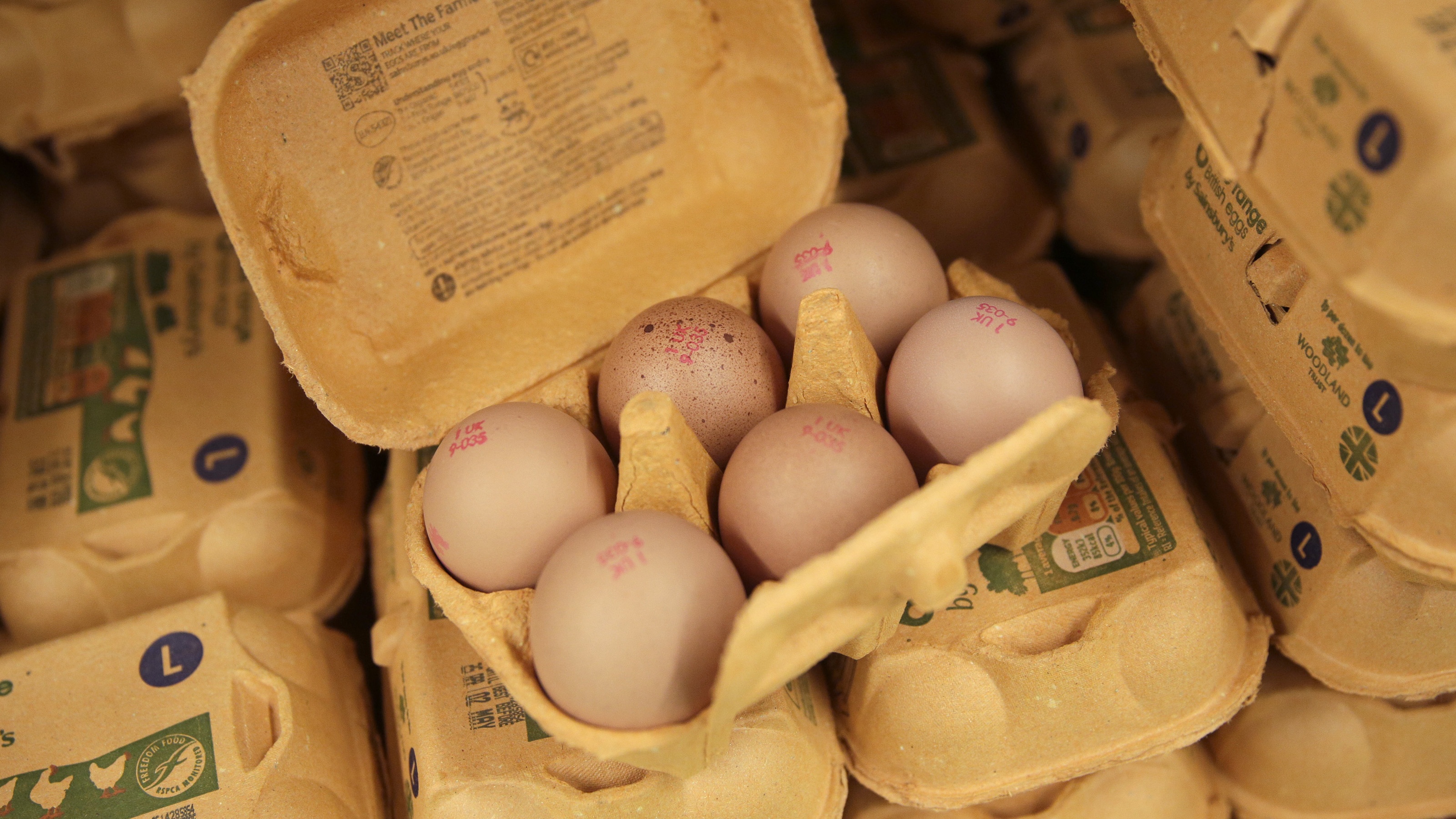 The UK’s Christmas egg shortage
The UK’s Christmas egg shortagefeature Supermarkets blame bird flu but farmers say unfair buying practices are driving them out of business
-
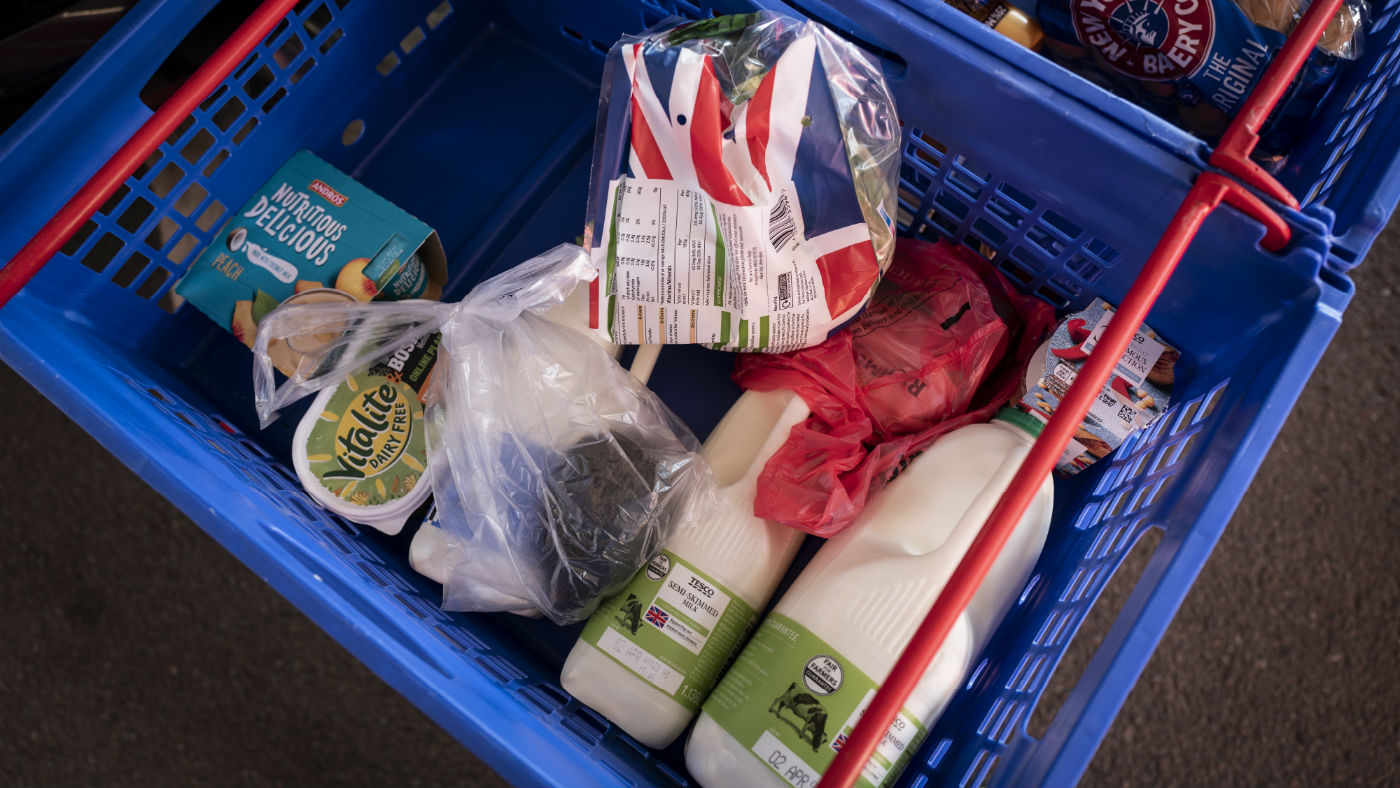 Tesco to reward lockdown temps with 16,000 permanent jobs
Tesco to reward lockdown temps with 16,000 permanent jobsSpeed Read The supermarket giant has more than doubled online capacity since lockdown amid boom in demand
-
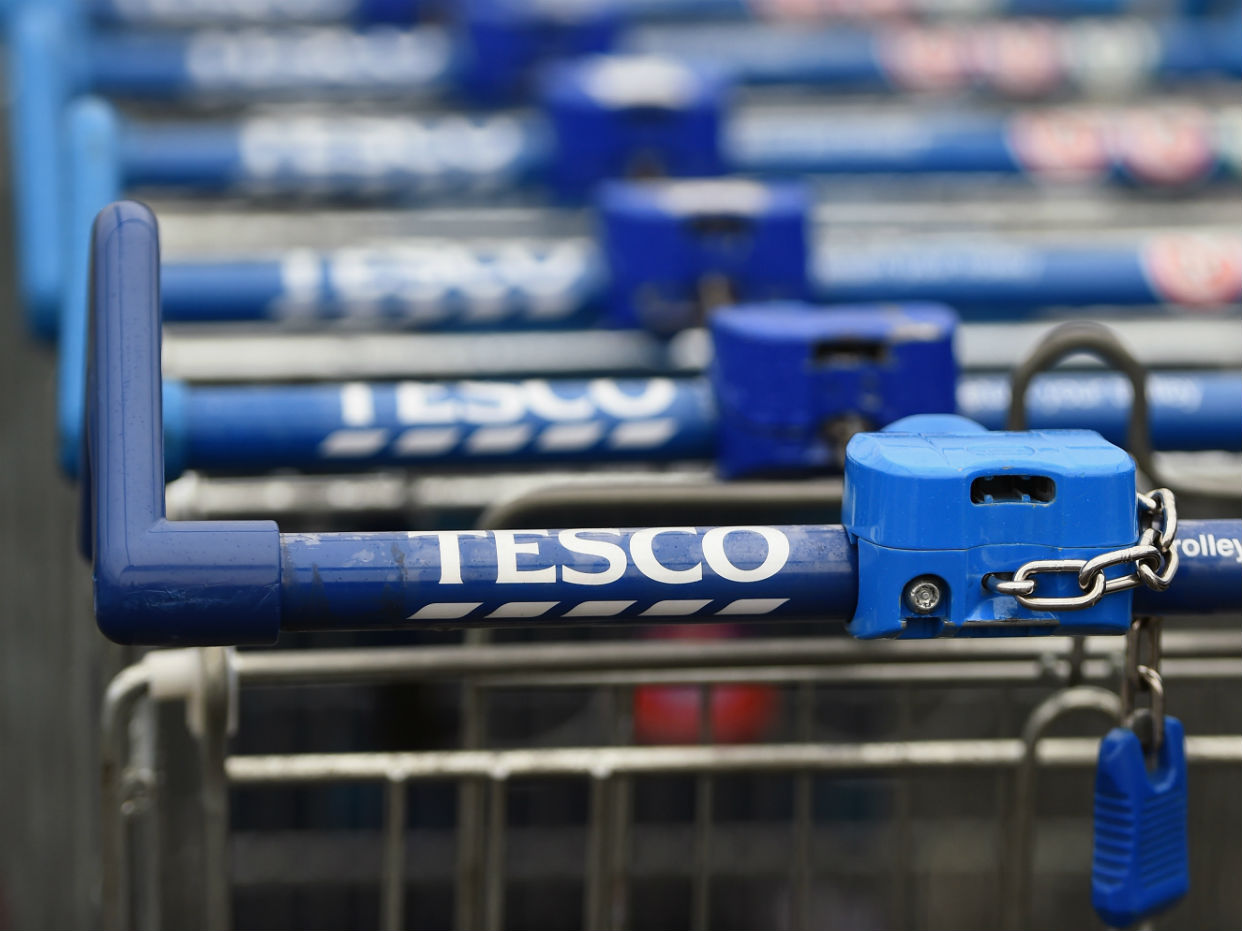 How coronavirus put the weekly shop back in vogue
How coronavirus put the weekly shop back in vogueSpeed Read Tesco boss says transactions have halved as basket size doubles
-
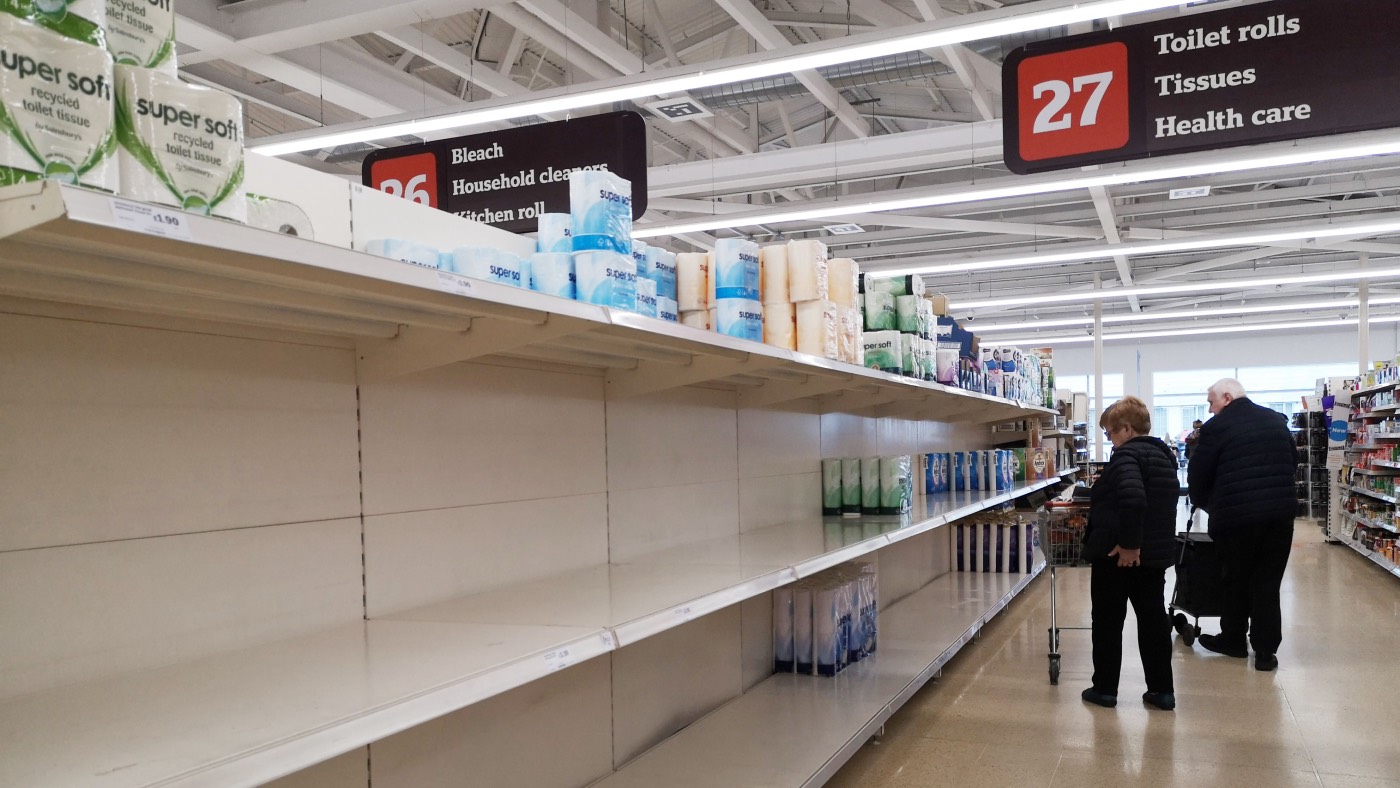 Coronavirus: supermarkets start rationing to combat panic buying
Coronavirus: supermarkets start rationing to combat panic buyingSpeed Read Stockpiling has led to empty shelves at some UK supermarkets - but shortages may be short-lived
-
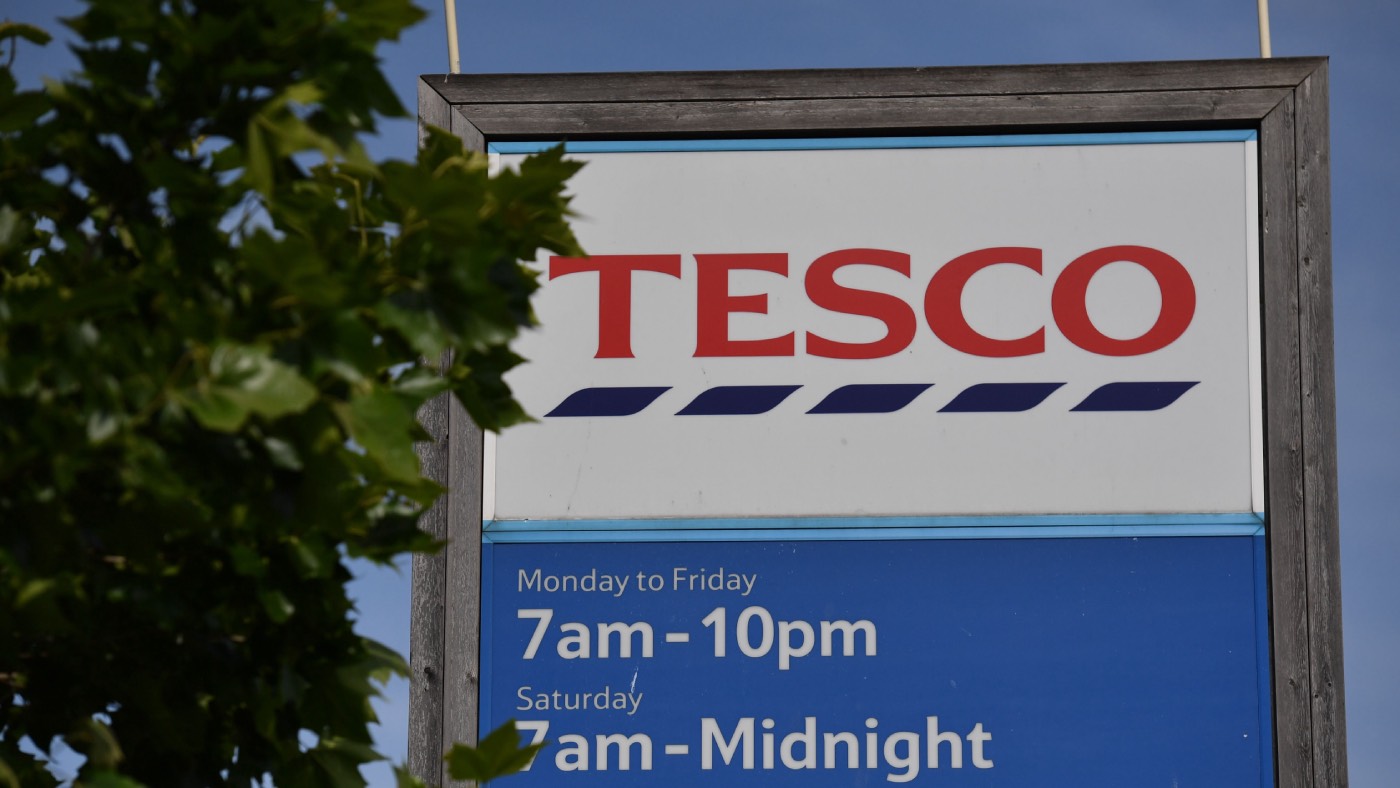 Tesco blames falling bread demand for 1,800 job cuts
Tesco blames falling bread demand for 1,800 job cutsSpeed Read Supermarket chain's announcement comes after rivals trimmed workforces
-
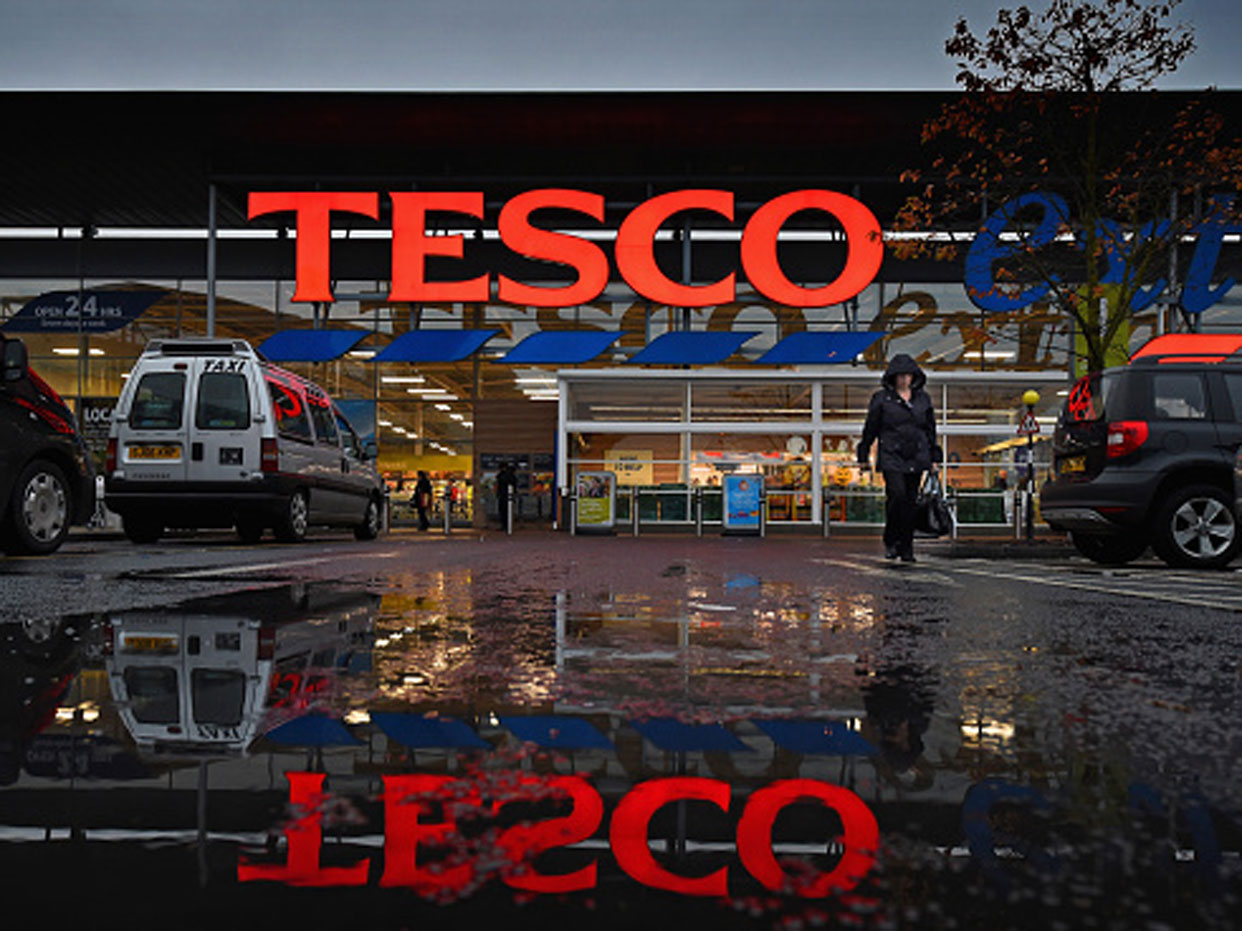 Tesco to sell plasters in diverse skin tones
Tesco to sell plasters in diverse skin tonesSpeed Read Move to diversify plaster offering follows viral tweet last year
-
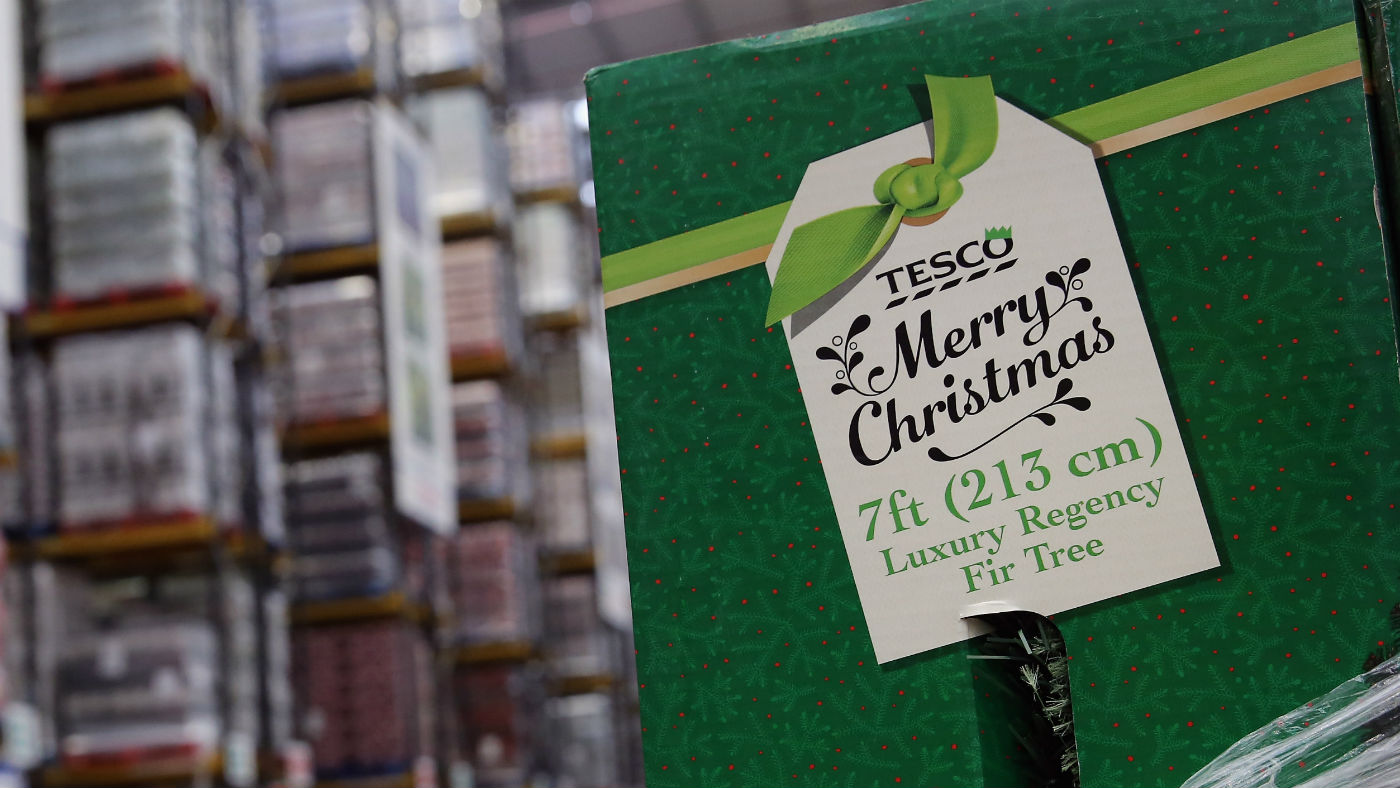 Tesco facing Christmas card forced labour claims
Tesco facing Christmas card forced labour claimsSpeed Read Six-year old’s discovery of a note from prisoners in a Chinese gulag puts spotlight on retailer’s relationship with suppliers
-
 Sales of Christmas puddings down on 2018
Sales of Christmas puddings down on 2018Speed Read Supermarket data shows slump in demand for festive food